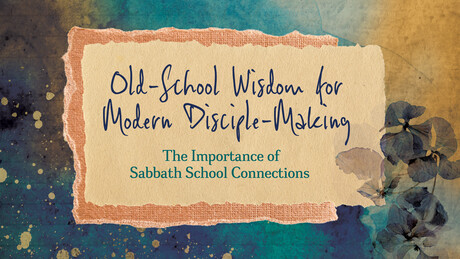"I think computer viruses should count as life. I think it says something about human nature that the only form of life we have created so far is purely destructive. We've created life in our own image."
— Stephen Hawking1
Stephen Hawking, celebrated English cosmologist, may not subscribe to a biblical view of the universe, but he shows a contemporary understanding that, in time, image reveals the heart. When God said, "Let us make man in our image" (Gen. 1:26), He was not speaking of a mere physical likeness. He breathed something special into our spirit that no other living creature can claim. Physically we are inferior to many other mammals. But God's image adds a spiritual and relational dimension shared by no other creature.2
Unfortunately, we, over the millenia, have turned image into an external façade. "Image is everything," some have claimed. Yet a plethora of recent examples from the corporate, financial and political world show how quickly an outward image dissolves when there is no inner value supporting it. We have a name for people with a lot of image but no corresponding values: hypocrites.
Integrity is Not Image
And that's where integrity comes in. The word "integrity" finds origin in the Latin adjective integer, "whole" or "complete." The ideal image for which God created us is a unity of the outer appearance with the inner spirit. It's like the structure of a well-engineered bridge or airplane, with every individual element integral to the integrity and strength we all depend on for safety. Integrity is the opposite of hypocrisy.3
"Yes, but who's perfect?" you respond, citing Paul's example. In his famous diatribe against his own nature, the apostle exclaimed, "For the good that I will to do, I do not do; but the evil I will not to do, that I practice."4
Integrity is Not Performance
Yet nearly every element of society we can imagine hinges on the ideal of integrity and trust. Good stewardship demands it. And that involves recognizing how dependent some of us have become on image — and how dishonest we have become in our efforts to maintain it.
A friend once confided, "I am so tired of trying to be perfect in front of my family and my wife. I feel like I'm on stage all the time." Too many Adventists are on this dead-end road, but God's plan of wholeness and integrity is something very different than outward performance.
Integrity is Not Perfection
At first glance, the familiar description of David as a "man after God's own heart," doesn't seem to match the call for integrity. Look at the hypocrisy of his dealings with Bathsheba and her unfortunate husband. The key here for David is honesty when confronted with his sins. That is what our Maker looks for — not perfection. He knows we don't have it in us. Perfection is found only in Him. The very first broken relationship on this world resulted in Adam and Eve trying to hide from God. So all down through the ages, He's been seeking those who are willing to come to Him as they are, with honest hearts. He knows the performance issues of many Adventists are killing them slowly. It's why He says to us today, "Come unto Me, all you who labor and are heavy laden, and I will give you rest. Take my yoke upon you, and learn from Me ... and you will find rest for your souls."5
A Recent Example
Big-league baseball umpire Jim Joyce was the goat of national headlines and online videos recently when his blown call took away a perfect game from a deserving young pitcher. Yet he publicly admitted his mistake and met with the player to apologize. A few days later, when ESPN confidentially asked 100 active baseball players to pick the three top umpires in the league, Joyce was named on 53 percent of the surveys, with the next highest umpire at 34 percent.6 In spite of his mistake — and because of his honesty — he will be remembered far longer than most.
Mistakes? Yes. Honesty? Always. Those are found in people of integrity.
So, when linked to the values of heaven, honesty is the price of integrity. When we make a mistake, we admit it and claim God's Spirit to help us move on, to learn from the process. Only then can we begin to see that image grows from integrity, not the other way around. Only then can our image reveal that we are, like David, "after God's own heart."7
1 http://hawking.org.uk/lifeintheuniverse
2 Philip Yancy, In His Image
3 http://en.wikipedia.org/wiki/Integrity
4 Romans 7:19 (NKJV)
5 Matthew 11:28, 29 (NKJV)
7 Acts 13:22












